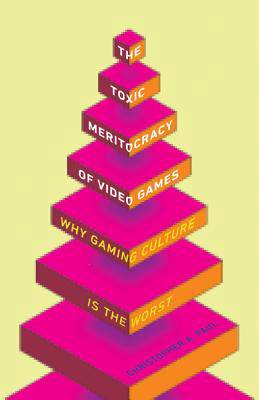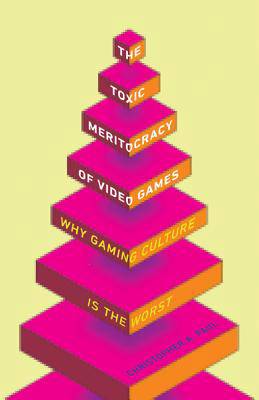
- Retrait gratuit dans votre magasin Club
- 7.000.000 titres dans notre catalogue
- Payer en toute sécurité
- Toujours un magasin près de chez vous
- Retrait gratuit dans votre magasin Club
- 7.000.0000 titres dans notre catalogue
- Payer en toute sécurité
- Toujours un magasin près de chez vous
The Toxic Meritocracy of Video Games
Why Gaming Culture Is the Worst
Christopher A PaulDescription
An avid gamer and sharp media critic explains meritocracy's negative contribution to video game culture--and what can be done about it
Video games have brought entertainment, education, and innovation to millions, but gaming also has its dark sides. From the deep-bred misogyny epitomized by GamerGate to the endemic malice of abusive player communities, gamer culture has had serious real-world repercussions, ranging from death threats to sexist industry practices and racist condemnations.In The Toxic Meritocracy of Video Games, new media critic and longtime gamer Christopher A. Paul explains how video games' focus on meritocracy empowers this negative culture. Paul first shows why meritocracy is integral to video-game design, narratives, and values. Games typically valorize skill and technique, and common video-game practices (such as leveling) build meritocratic thinking into the most basic premises. Video games are often assumed to have an even playing field, but they facilitate skill transfer from game to game, allowing certain players a built-in advantage.
The Toxic Meritocracy of Video Games identifies deep-seated challenges in the culture of video games--but all is not lost. As Paul argues, similarly meritocratic institutions like professional sports and higher education have found powerful remedies to alleviate their own toxic cultures, including active recruiting and strategies that promote values such as contingency, luck, and serendipity. These can be brought to the gamer universe, Paul contends, ultimately fostering a more diverse, accepting, and self-reflective culture that is not only good for gamers but good for video games as well.
Spécifications
Parties prenantes
- Auteur(s) :
- Editeur:
Contenu
- Nombre de pages :
- 280
- Langue:
- Anglais
Caractéristiques
- EAN:
- 9781517900410
- Date de parution :
- 20-02-18
- Format:
- Livre broché
- Format numérique:
- Trade paperback (VS)
- Dimensions :
- 137 mm x 213 mm
- Poids :
- 272 g

Les avis
Nous publions uniquement les avis qui respectent les conditions requises. Consultez nos conditions pour les avis.






